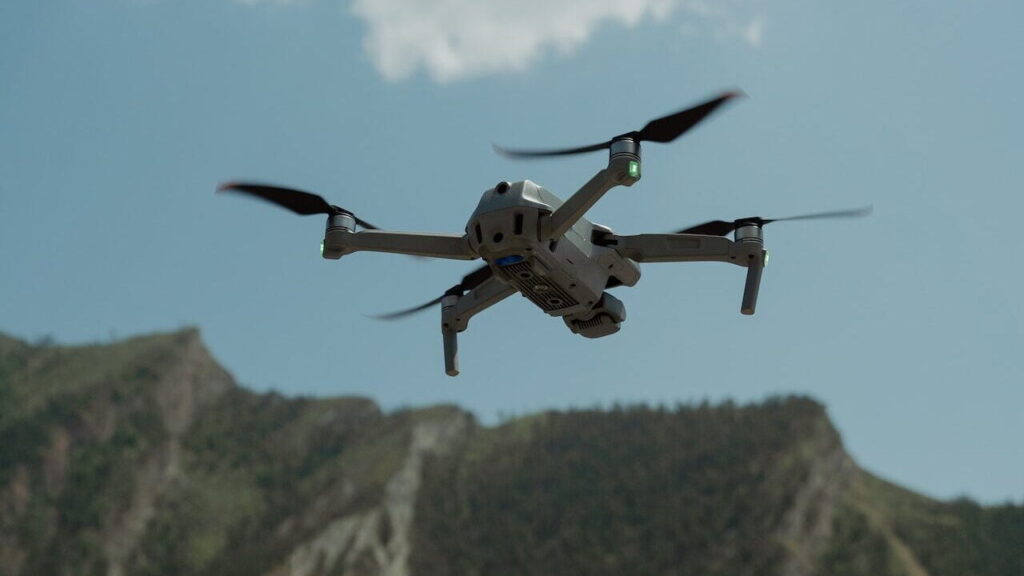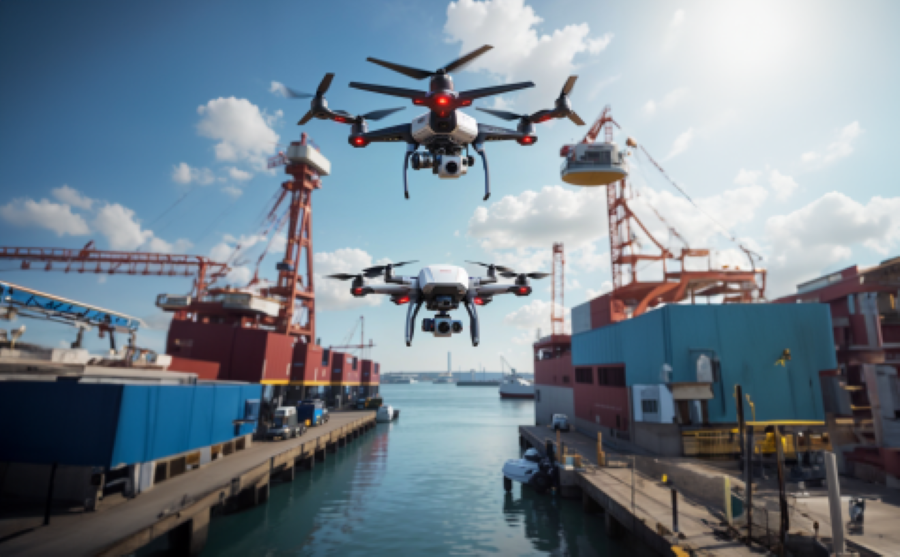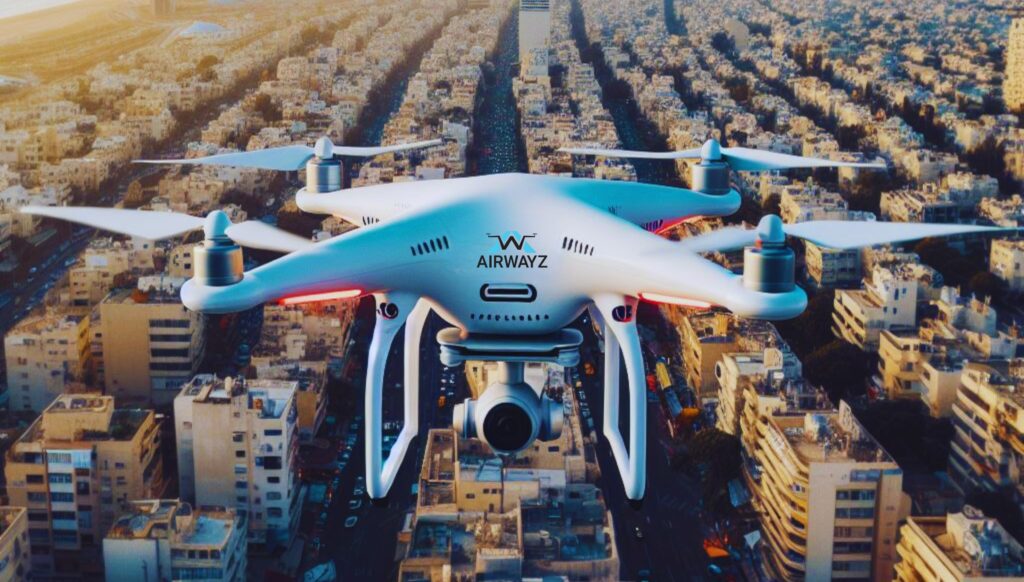Just a decade ago, the idea that companies and individuals would be able to take to the skies quickly and easily as part of everyday life was largely limited to books, films and TV series of a sci-fi bent.
But now unmanned aerial vehicles – commonly known as drones – have not only become instrumental to business but are also on the cusp of a revolution in transportation too.
And the question of how we can all safely share and navigate the lower airspace in which drones operate is being answered by unmanned traffic management (UTM) systems, which tell them where to fly, and at what speed and altitude.
“[With] more and more drones flying within our airspace safely, you need the UTM software to make sure that they can synchronize within the airspace,” explains Eyal Zor, the CEO of Israeli startup Airwayz, whose software has become one of the most commonly used UTMs worldwide.

UTMs were the missing link in the chain, Zor tells NoCamels, synchronizing all of the airborne craft that do not have a pilot and instead are managed remotely from the ground.
“When you’re managing an airspace, it’s mandatory to connect with a UTM,” Zor explains.
Flying drones without UTMs is akin to having cars without roads, he says. He also compares them to traffic navigation systems such as Waze, which provide drivers with information about the road conditions ahead, including the location of other vehicles.
There are multiple UTMs in use around the world, and they are responsible for ensuring that they are all synchronized and that the airspace information is reliable and transparent for all users.
They guarantee that the drone operators all get the relevant information about weather conditions, GPS data and the overall environment, so that everyone has the same true airspace information and every airborne craft in a certain airspace is accounted for and is authorized to fly along its route.
“Different operators can work together because UTM companies know how to be the bridge between them,” Zor says.
Zor says Airwayz’ AI-based platform has the edge over its competitors as it can cope with thousands of drones all in the skies at the same time.
Airwayz, he says, can work successfully with scores of different drone operators simultaneously.
“It’s like a virtual traffic controller,” Zor says of the platform. “We get all the information and we utilize AI to understand exactly all the constraints in real time.”
Sign up for our free weekly newsletter
SubscribeAn air traffic controller must be aware of human limitations, he says, able to manage perhaps 40 aircraft at the same time but absolutely incapable of dealing with 400 or even 1,000.
But aerospace is dynamic, he points out, and there are a lot of possible routes. As such, Airwayz finds the most optimized flight path for each drone or operator without compromising the safety of the entire environment.
“Leading clients say, I need to have a system that can understand all of the constraints, and support [our] 1,000 operators. This is what we can provide with our system.”

Airwayz is currently in use in multiple locations, including Rotterdam Port, the largest seaport in the Western World and the largest outside of East Asia. It is also, according to Zor, the most technologically advanced port in the world.
The UTM has proved itself at the port, he says, able to manage airspace of an area the size of Manhattan, where there are 3,000 companies and 60 drone operators. The drones are used in a range of ways such as site inspections, moving goods and even countering drug-smuggling efforts.
Airwayz began working at Rotterdam Port due to a successful period managing drones at the Israeli seaports in Tel Aviv, Ashdod and Haifa, Zor recalls.
The company’s work at Haifa in the north, Tel Aviv in the center and Ashdod in the south is part of the Israel National Drone Initiative (INDI), a multiyear project designed to prepare the groundwork for the regular use of these unmanned aircraft in the country – building the technology, regulation and infrastructure ahead of their introduction.
“We’re maybe at the front of the line to say the system is ready to deploy on a national scale,” he says. “We are very experienced with our system.”
The company was established in 2019 by Zor and co-founders Shai Kurianski, the CTO, and Yair Yosef, the CPO. It has completed its Series A funding round, raising an undisclosed sum, and is now looking to expand its presence in the international UTM market.
With a well-established foothold in Europe, Airwayz is planning to move into other countries and forms of drone usage on the continent. It is also breaking into the US market, where it has begun working with American Robotics, a company specializing in autonomous drone systems.
Both European nations and the United States, Zor says, are becoming increasingly prepared for an expansion of drone usage, and companies are already certifying theri air taxis as a means of transportation in the near future.
“Airwayz is here to make sure that this technology, this revolution is ready to scale up and be adopted in our skies safely,” he says.
Related posts

Editors’ & Readers’ Choice: 10 Favorite NoCamels Articles

Forward Facing: What Does The Future Hold For Israeli High-Tech?

Impact Innovation: Israeli Startups That Could Shape Our Future




Facebook comments